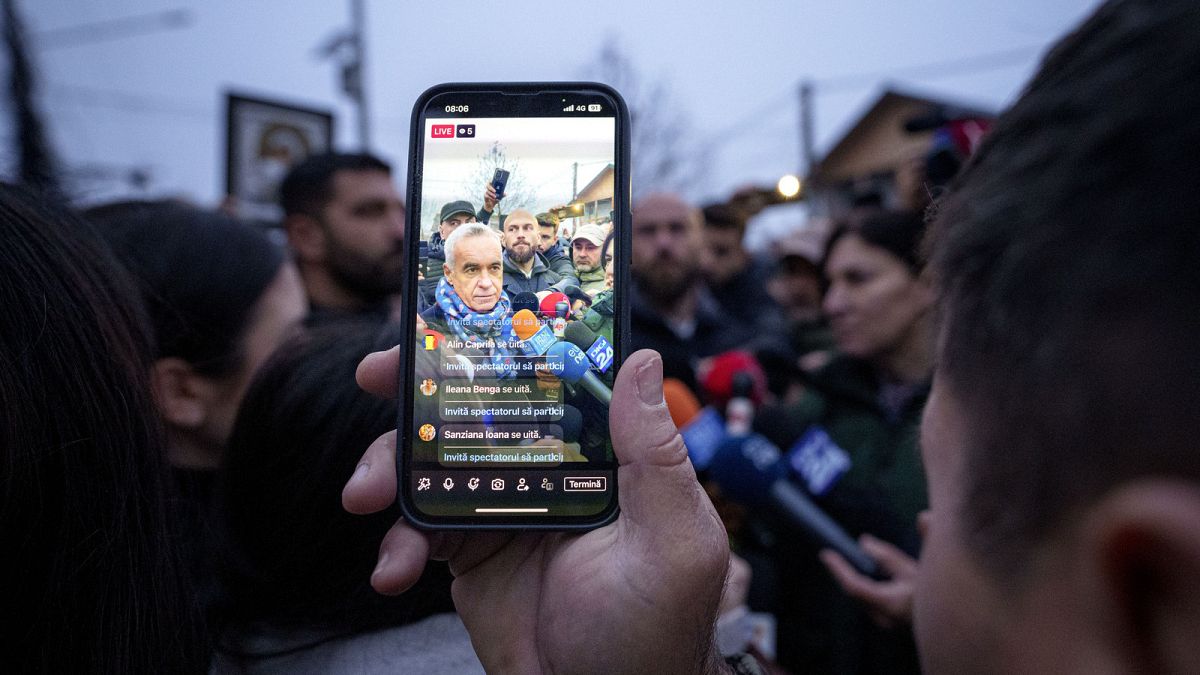More people than ever before were called to the ballot boxes in 2024, as democracies worldwide raised their guard against information manipulation.
An estimated 3.7 billion people in more than 70 countries across the world were eligible to vote in 2024 according to the UN, in what has been described as a landmark ‘super year’ of elections.
High-stakes votes took place in populous nations such as the US, India and Indonesia, and authoritarian and autocratic states including Belarus, Iran and Russia. The European election in June saw some 182 million people cast their ballots across 27 countries in one of the world’s biggest cross-border votes.
But many of those ballots shone a harsh light on the increasingly disruptive impact of misinformation, generative AI and foreign interference on electoral processes.
Meta, which owns social platforms Instagram, Facebook and WhatsApp, said earlier this month that despite warnings about the risk of generative AI to elections, “it seems these risks did not materialise in a significant way and that any such impact was modest and limited in scope.”
Recent studies by the UK-based Centre for Emerging Technology and Security conclude that the European, French and UK elections were not “meaningfully impacted” by foreign-backed or AI-enabled misinformation and find no “conclusive evidence” such campaigns swayed the result of the US presidential ballot in November.
But the notion that no 2024 election had been severely impacted by information manipulation was dispelled in December, when the Romanian Constitutional Court decided to annul the first-round results of the presidential election and cancel the run-off.
The decision was made based on declassified Romanian intelligence suggesting a “state actor” had orchestrated the social media campaign of the first-round winner, Calin Georgescu.
Euronews breaks down five moments where we saw the potentially disruptive impact of AI-enabled misinformation and foreign interference in elections across the world this year.
Imprisoned former prime minister uses AI to address voters
In February, the imprisoned former prime minister of Pakistan, Imran Khan, used artificial intelligence to clone his voice in a speech to proclaim victory in the country’s general election.
Khan had been using AI-generated speeches to address and rally his supporters from behind bars throughout the campaign.
But the proclamation of victory — made in a video that used historical footage of Khan and an AI-generated voice — was particularly controversial. Khan had been barred from running while he serves prison time on charges related to corruption and leaking state secrets.
Independent candidates associated with Khan’s PTI party secured most seats in the election but failed to form a government.
EU staves off disinformation threat
In June’s European parliamentary election, the bloc prepared itself for a wave of electoral disinformation and other hybrid threats designed to undermine the vote.
According to the European Digital Media Observatory (EDMO), EU-related disinformation on online platforms reached a record high in the month leading up to the vote.
Pro-Kremlin hackers claimed responsibility for a series of attacks on the websites of Dutch political parties during the first day of voting.
Several online campaigns designed to sow confusion about the voting process were also detected, including claims that a mark that went beyond the check box would make a vote invalid.
But EDMO also concluded that voting across the EU’s 27 countries went ahead “without major threats and disinformation incidents.”
Moldova’s knife-edge referendum marred by interference
In October, Moldovans voted in the first round of presidential elections and a referendum on the country’s EU membership bid.
The referendum result went down to the wire, with the first preliminary counts suggesting the “no to EU membership” camp had won, before a last-minute spike in “yes” votes.
A razor-thin 50.35% voted “yes”, allowing the country to enshrine its wish to become part of the European bloc into its constitution.
In the run-up to the two ballots, Moldova was caught in the crossfire of an information war pitting EU membership against closer alignment with Russia. Moldovan authorities warned that some €14 million in Russian funds had been funnelled directly into the accounts of 130,000 Moldovans in a bid to buy their anti-EU votes.
Bomb threats cast shadow over US presidential ballot
The pivotal US presidential election, which saw Donald Trump return to power, was also vulnerable to disinformation and other hybrid threats. Candidates on both sides were targeted by defamatory online campaigns aimed at discrediting them.
On the day of voting, bomb threats forced polling stations to close in several battleground swing states, including Pennsylvania and Georgia.
The FBI said in a statement that many of the false alerts seemed to “originate from Russian email domains.”
Romania’s presidential vote cancelled
The first round of Romania’s presidential election in late November unexpectedly attracted Europe and the world’s attention after a little-known ultranationalist, Calin Georgescu, swept to victory after running a successful TikTok campaign.
The second round was then dramatically called off and the first-round result annulled after declassified intelligence revealed a “state actor”, presumably Russia, was behind Georgescu’s unprecedented rise.
The EU executive has since launched an investigation into whether TikTok breached EU law in facilitating Georgescu’s campaign.
The probe aims to determine whether the Chinese-owned platform adequately mitigated risks linked to the integrity of Romania’s election, in line with the bloc’s digital rulebook, the Digital Services Act (DSA).
Read the full article here
